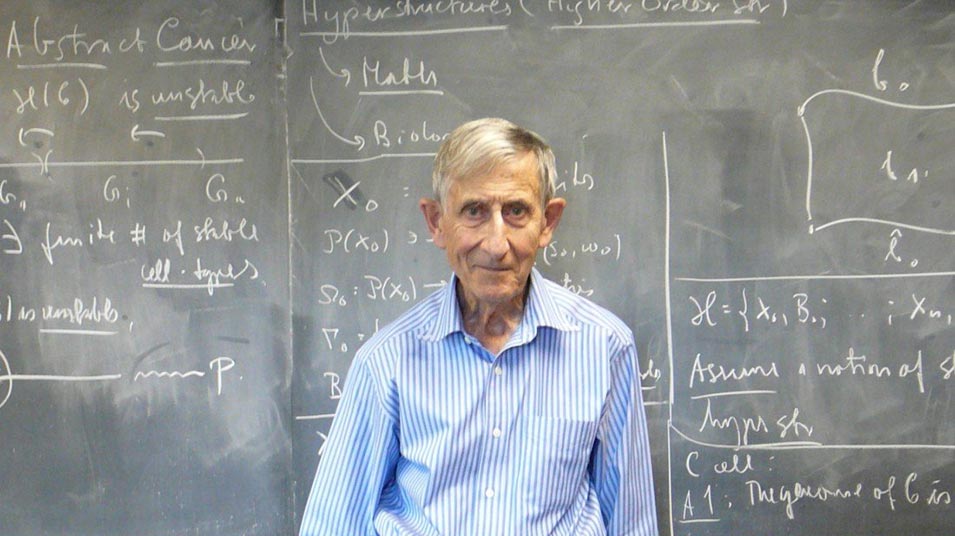Birzeit University mourns the passing of physicists, supporter Freeman Dyson
Birzeit University mourns the loss of its friend and supporter, famed physicist Freeman Dyson, who passed away on February 28, 2020, at the age of 96 years. The renowned scientist had a close relationship with the university and actively supported the Palestinian cause and right of academic freedom.
Dyson was among the distinguished guests and international lecturers who visited Birzeit University in the 1970s along with the late Stephen Hawking, a professor at Cambridge University; the late Edward Said, a professor of comparative literature at Columbia University; and American linguist and political commentator Noam Chomsky; among others. Dyson gave memorable lectures and engaged in encounters and rewarding discussions with the university’s students.
An ardent supporter of Palestine, Dyson signed numerous petitions to support Birzeit University and Palestinians in general, including the 2002 Statement in Support of the Right to Education at Birzeit University and for International Protection for Palestinian Civilians, and a petition to free the renowned Palestinian astrophysicist Imad Barghouthi. Israeli media and journalists criticized him for his direct statements that condemned Israeli violations of Palestinian rights.
Dyson is an iconic figure in academia and his predictions, made at an early age, intrigued space enthusiasts and science fiction authors. A theoretical physicist and mathematician, Dyson held a BA in mathematics, obtained from Trinity College, Cambridge, after World War II, and worked toward a Doctorate in physics at Cornell. Even though he never finished this degree, he was awarded a post at the Institute for Advanced Study in Princeton, which he held from 1953 to 1994 and where he remained a professor emeritus and maintained an office until his death. Dyson is best known for his numerous and significant contributions to physics and mathematics, including providing support for and practical use of Feynman diagrams (which illustrated the behavior of subatomic particles), thereby helping Richard Feynman, Julian Schwinger and Sin-Itiro Tomonaga being awarded the Nobel Prize in physics in 1965.
Dyson was known for his vast intellect as well as his thought-provoking concepts. He had the ability to see beyond the horizon towards “what could be” and to produce ideas that were guaranteed to stimulate both debate and action.







